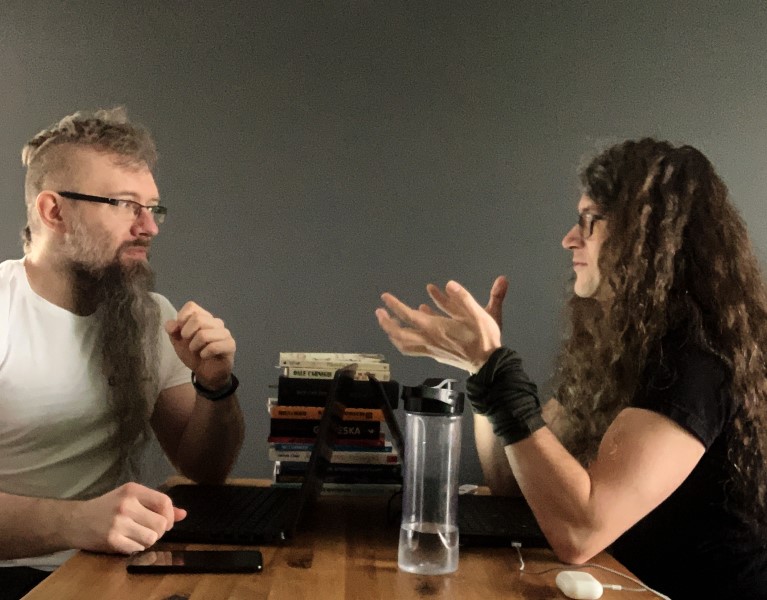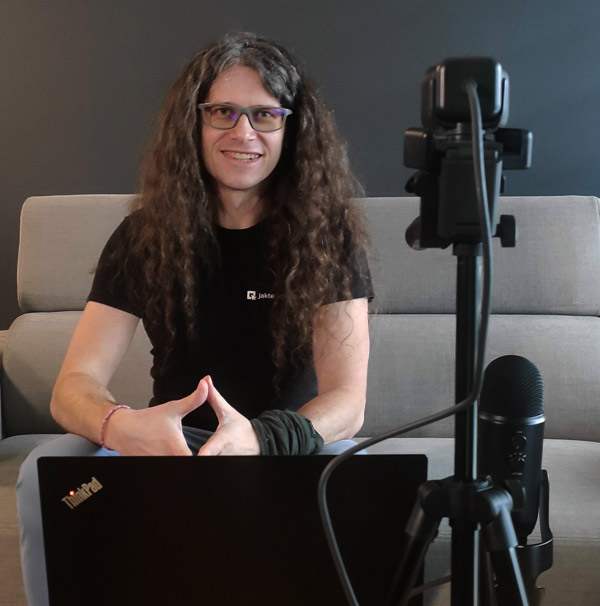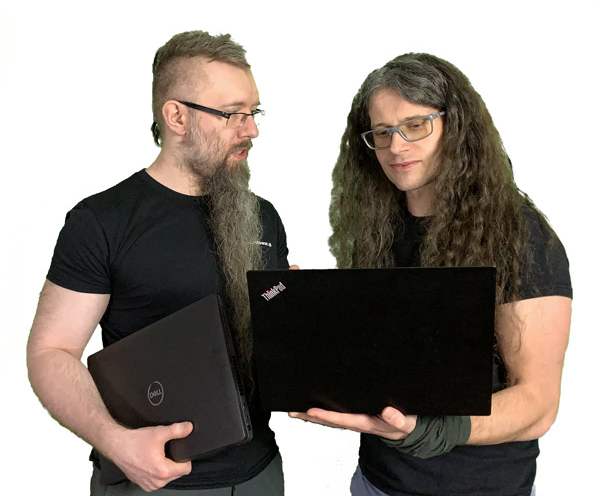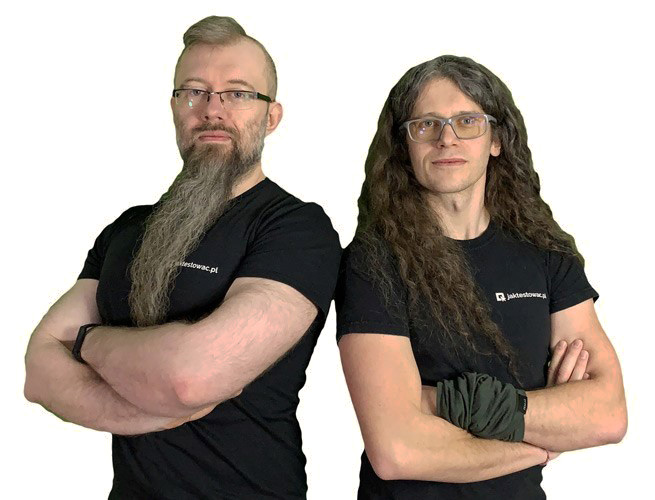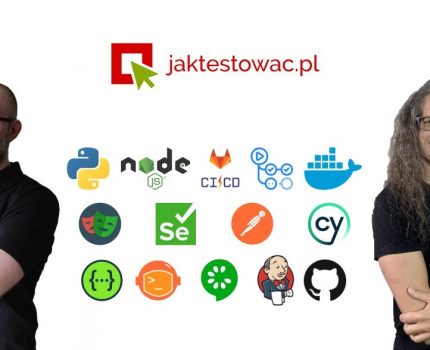
How Does Collaboration Work?
Initially, we request an email contact with a description of the problem and needs. The more information you provide at this stage, the sooner we can proceed to collaboration. We will get back to you as soon as possible, proposing further steps and a conversation.
Next, we conduct an analysis of the collaboration scope. We list various possibilities and solutions.
In the following step, during a discussion, we establish collaboration conditions, such as meeting frequency, support scope, or payment method. Depending on your needs, we can sign an NDA and then start periodic meetings as often as necessary. You have the final say within the available possibilities.
What Are the Forms of Consultation?
Most often, these will be conversations in the form of teleconferences. In addition, you can contact us via email or through various communication tools (MS Teams, Zoom, etc.) at any time. We determine the communication method at the beginning when defining collaboration conditions.
Besides conversations, our collaboration includes other activities such as Code Review, preparing testing frameworks in various languages, requirement analysis, test strategy development, etc. We also offer activities like Pair-Coding, Pair-Review, or Pair-Testing, which are excellent ways to share knowledge through practice.
What Is the Price for All Services?
The price depends on several factors, such as the support scope or the estimated collaboration duration. The service price starts from 350 PLN gross (284,55 PLN net) per hour. We also offer collaboration on a Fixed Price basis, where we deliver a product like a testing framework in a specific language.
Who Will We Work With? Who Are the Consultants?
Our team consists of qualified specialists with extensive industry experience. We understand that no one person embodies all competencies at once, so depending on the problem, we’ll try to match the best possible consultant. Ideally, someone who has already successfully solved a similar problem.
What Is Your IT Experience as Consultants?
The work of a consultant, with which we have had the pleasure, involves not only solving complex technical problems with intricate and often unclear dependencies but also supporting sales processes, participating in workshops with clients, supporting QA development, developing testing strategies, and efficient software delivery. There are many challenges in projects, and it’s impossible to write about all of them. However, aware of the constant technological progress, we go with the flow and don’t give up on our own development.
In Which Projects and Industries Have You Worked?
We have worked on and supported projects from various industries, including financial, transportation, medical, e-commerce, sports, software, entertainment, heavy industry, and more.
What Technologies Have You Worked With?
- The list of technologies we have worked with is extensive, including various programming languages (Python, JavaScript/TypeScript, C#, Java, nodejs, Swift), technologies/frameworks (Angular, React, .Net Core, ASP.NET), and commonly used tools in projects.
- In terms of CI/CD processes, we have worked with Azure DevOps, GitLab CI, Jenkins, and GitHub Actions.
- For automated testing, we have led projects using Selenium, Cypress, Playwright, nUnit, xUnit, and White.
- Virtualization using Docker and Kubernetes.
- Cloud platforms like Azure, AWS, Heroku.
- Other noteworthy technologies include web3.js, Ethereum, Hyperledger Fabric, Solidity, ChatGPT.
What Is Your Experience in Training and Mentoring?
Apart from the jaktestowac.pl initiative, where you can find a variety of courses, we have been conducting internal training in companies for years. Starting from junior level, up to advanced training for senior staff. The training covers the use of various tools, the application of best practices, process work in projects, etc.
We have been involved in mentoring for several years, supporting testers with different levels of experience, from juniors to upskilling seniors. Mentoring allows for a more personalized approach to development, from outlining a development path, supporting learning, to guiding towards finding their own solutions within a project.
In both cases, we have years of experience with many satisfied mentees and course participants. We also continue to improve our knowledge in topics related to knowledge transfer through participation in dedicated training and courses.
What Is Your Experience in Remote Teamwork?
The pandemic has changed the way work looks today, but it was nothing new for IT. Access to high-speed internet allows working from anywhere in the world. We have carried out projects for clients from around the globe – the UK, Germany, the USA, South Africa, India, and more.
We are currently also working on projects remotely. In our opinion, cultural awareness and who you are working with are more important than remote work. Effective communication is the key to success.
Do You Have Experience with New or Emerging Technologies?
Yes, we have worked with such technologies in projects. Examples include machine learning or blockchain. In both cases (but not limited to them), understanding the client and their business goals is crucial to tailor solutions and recommendations.
For each project, we thoroughly analyze the requirements and needs, such as the need for large data samples or appropriate data for machine learning. When it comes to blockchain technology, you need to be prepared for the challenges of decentralized systems, answer questions about the right blockchain architecture, and often engage in community building or tokenomics.
New technologies can be harnessed, but they are not a one-size-fits-all solution for all ‘typical’ projects. Therefore, in our work, we follow common sense and experience gained from knowledge, placing the goal above technology.
A similar situation occurs with new tools or libraries that are not yet battle-tested, often with incomplete documentation or no support at all. There is no clear answer to whether to use them or not. We are confident that we can help you make an informed decision.
What Are Your Experiences and Skills in Designing and Architecting Solutions?
In addition to designing quality-focused solutions such as testing frameworks, processes, and strategies based on software best practices, we also have experience in designing complete system solutions. This includes functional and non-functional requirements, project documentation, decision logs, diagrams, selection of cloud services, infrastructure, and integration with third-party systems. We have been responsible for typical agile teams as well as those composed solely of software quality engineers.
Do You Provide VAT Invoices or Pro Forma Invoices?
Yes, we issue a VAT invoice for every payment. If needed, we can also issue a pro forma invoice.
|
